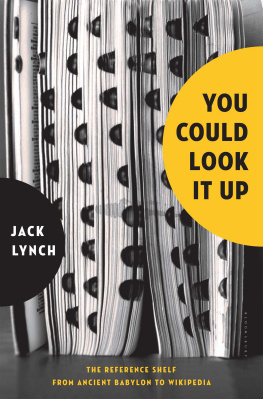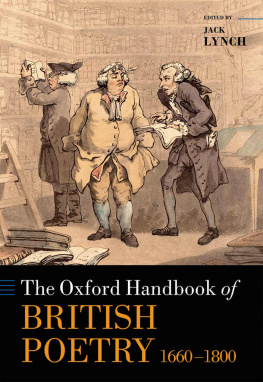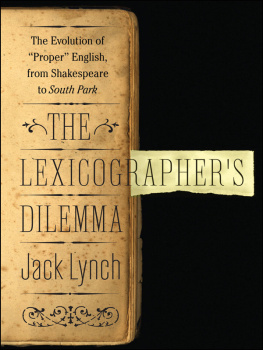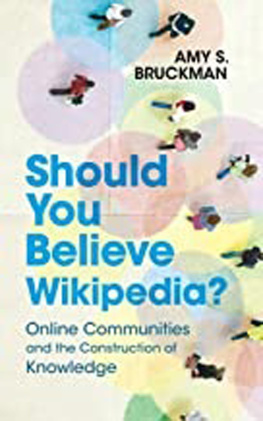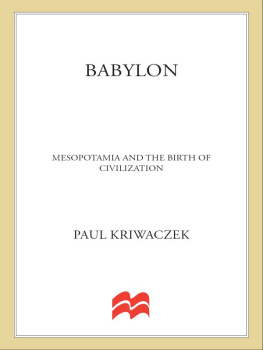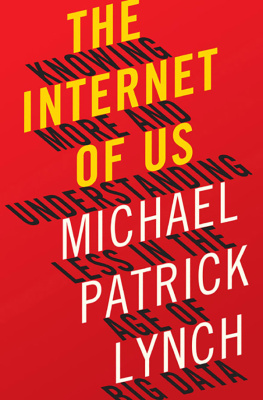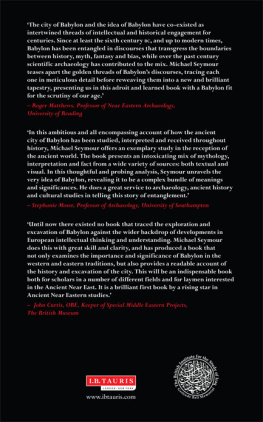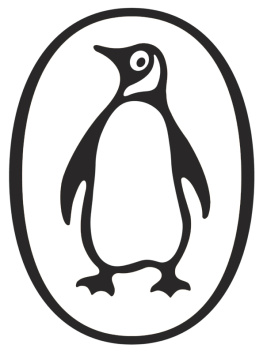For Dan Traister
Prince of Librarians

CONTENTS
CHAPTER 1:
CHAPTER 2:
CHAPTER 3:
CHAPTER 4:
CHAPTER 5:
CHAPTER 6:
CHAPTER 7:
CHAPTER 8:
CHAPTER 9:
CHAPTER 10:
CHAPTER 11:
CHAPTER 12:
CHAPTER 13:
CHAPTER 14:
CHAPTER 15:
CHAPTER 16:
CHAPTER 17:
CHAPTER 18:
CHAPTER 19:
CHAPTER 20:
CHAPTER 21:
CHAPTER 22:
CHAPTER 23:
CHAPTER 24:
It all begins with the written word.
Reference means nothing without writing. In a primary oral culture, wrote Walter J. Ong, the twentieth centurys greatest theorist of orality, the expression to look up something is an empty phrase: it would have no conceivable meaning. Without writing, words as such have no visual presence.... You might call them backrecall them. But there is nowhere to look for them. But because we live in a bookish and data-rich culture, we all know what it means to look for information. You Could Look It Up is an account of fifty great reference books, from the third millennium B.C.E. to the present, all of them ambitious attempts to collect a vast amount of knowledge and to present it to the world in a usable form.
For some, the reference book is the emblem of pedantry, sterility, dead facts rather than living wisdom. Charles Dickens gave us Thomas Gradgrind, the dry-as-dust pedant whose mantra is Fact, fact, fact! Sadly, the word knowledge is often paired with rote , as if a knowledge of facts necessarily precludes a deeper understanding or an imaginative engagement.
Dictionaries do not spring into being, Sidney Landau wrote. People must plan them, collect information, and write them . No other form of writing is at once so quixotic and so intensely practical. But when the public thinks about the people who write reference booksif the public ever thinks about themthey probably call to mind what Samuel Johnson called harmless drudges. Howard Hawkss 1941 screwball comedy Ball of Fire sparkles with a script co-written by Billy Wilder. It features a team of socially inept professors, modeled on Snow Whites seven dwarfs, who live together in a big house and work on an encyclopedia containing all the worlds knowledge. Gary Cooper, brilliantly cast against type as Professor Bertram Potts, stands at the head of this sorry crew of encyclopedists, lexicographers, and grammarians including Professors Gurkakoff, Magenbruch, Oddley, and Peagram. They are all utterly stymied when confronted with the va-va-voom burlesque-queen heroine, Katherine Sugarpuss OShea, played by Barbara Stanwyck.
But the actual world of reference books, overflowing with fact, fact, fact , is positively exuberant, passionate, bursting with knowledge, and their authors are not always sexless cartoon characters but include quirky geniuses, revolutionary firebrands, and impassioned culture warriors, many of them with the unflagging intellectual energy of a whirling dervish. You Could Look It Up tells the story of two emperors, a Roman naturalist who sailed his ship toward an erupting volcano and died in the falling ash, the inventor of the decimal point, the philosophers who were blamed for starting the French Revolution, the German folklorists whose gory tales still frighten children, and an Oxford classicist whose daughter Alice went down the rabbit hole to Wonderland.
You Could Look It Up is partly a call to read, or at least read in , these books, and to get to know the people who wrote them. A reference book collects a civilizations memoranda to itself. When we turn an ancient dictionarys pages, we read something never meant for our eyes, and we get to overhear the dead talking among themselves. That is why reference books have much to teach us, even when they are obsoleteespecially when they are obsolete. Of course we can learn all sorts of trivia from old dictionaries and encyclopedias, but also much more than trivia. In looking at these old books we get the chance to look through them, at the people who created them and at the worlds they inhabited. When we discover that human beings were divided into five groups in the first Encyclopdia Britannica American, European, Asiatic, African, and monstrouswe get a glimpse of early scientific race theory coming into being. An old atlas is worthless if we want to locate events in todays news, but it tells us plenty about how the world looked to another culture. An encyclopedia written before Columbus crossed the Atlantic says nothing useful about the smartphone, but it is one cultures way of describing the entirety of their physical, intellectual, and spiritual worlds. Even a book filled with numerical tables can end up telling a story about the incipient Industrial Revolution.
The dictionary, the encyclopedia, the atlas, the legal codeall act to distill knowledge. Distillation is the right metaphor. As any decent encyclopedia will explain, distillation removes impurities and gives us a concentrated essence. A solution goes into the alembic, where it is heated to boiling; the volatile spirits separate from the water and are captured, then allowed to condense on the other side. Out comes a purer form of the spiritin our case, knowledge. The reference book is concentrated wisdom.
Even when concentrated, the information can still be overwhelming. A reference book is the product of a society trying to deal with more knowledge than even the most committed sage can hope to hold in memory. Reference books are big, because no one needs an encyclopedia with ten entries. Only when the body of information becomes too large to keep in our heads do we decide to offload it to paper and expand our memories into offsite storage.
And the more virtual memory a reference promises us, the more enthusiastic we are about its contents. At the heart of the reference genre is the Renaissance ideal of copia , Latin for copiousness or fullness. Desiderius Erasmus, the very model of the Renaissance man and one of the most expansive minds the world has ever known, devoted a whole book to copia , the ebullient overflowing of words and ideas. He loved books that were crammed with knowledge, so much so that they were almost bursting at the seams, and everyone who has ever fallen in love with a dictionary or an encyclopedia has the same passion. This book tries to capture some of the copiousness that marks the great reference books.
Reference books shape the world. Encyclopedists and lexicographers rarely discover new facts, but by organizing and categorizing the old ones they can influence whole fields of knowledge. They determine what kinds of questions a civilization can ask about itself. Those who work under the imprimatur of some prestigious organization The Catholic Encyclopedia , The Great Soviet Encyclopedia proclaim unquestionable doctrine to the masses. Lexicographers may have no ambitions beyond telling an accurate story about a word, but they have determined the outcome in decisions of the Supreme Court. The compilers of the Diagnostic and Statistical Manual of Mental Disorders can, by declaring a given condition to be a psychiatric illness, save a criminal from the gallows or exclude a qualified person from government service. And yet, even though these books have all been compiled by fallible human beings, much of the world looks on them as unimpeachable. Ill arguewith only a small bit of exaggerationthat the reference book is responsible for the spread of empires, the scientific revolution, the French Revolution, and the invention of the computer.

What, exactly, is a reference book? In 1911, the librarian Gilbert Ward offered a succinct explanation: Definition of a reference book.A reference book is a book which is used for looking up particular points rather than for reading through. Most books get their worth from their entirety, and it makes no sense to read just chapter 37 of Don Quixote or book 11, chapter 5 of The Brothers Karamazov . Reference works, on the other hand, are meant to be useful in pieces. Information is extracted from its original context, sliced, and rearranged, with the important level of organization being not the book or the chapter but the entry, which is expected to make sense on its own. These entries are usually organized arbitrarily, designed to be conveniently located in answering questions that users might ask. That word users is a significant one: most books have readers, but reference books have users. Still, it is not always easy to draw a line between reference works and others. Is a cookbook a reference book? An anthology? Almost any compilation could count. In fact, any book in the world can become a reference book if we read in it to find a specific piece of information. But a proper reference book is designed to facilitate consultation rather than reading through.
Next page
